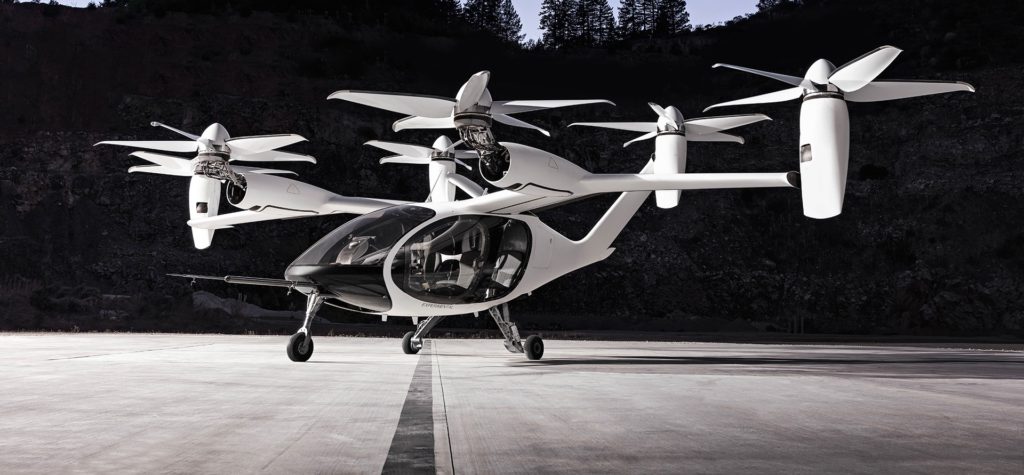Carmakers look to the skies with flying-taxi plans
27 January 2020

27 January 2020
Toyota’s latest announcement that it has invested in a flying taxi startup highlights a continuing trend for vehicle manufacturers looking to the future of mobility beyond the roads.
The Japanese carmaker has decided to back Joby Aviation (Joby), an aerospace company that is developing and commercialising all-electric vertical take-off and landing (eVTOL) aircraft to enable the deployment of fast, quiet and affordable air-transportation services.
This mirrors plans unveiled by Hyundai at CES to study and develop Urban Air Mobility (UAM) services as part of its three-fold plan to establish its place in the future mobility market. It will do this alongside Uber, with the ride-hailing business having its own plans for a service operating by 2023.
Japanese route
“Air transportation has been a long-term goal for Toyota, and while we continue our work in the automobile business, this agreement sets our sights to the sky,” said Toyota Motor Corporation President and CEO Akio Toyoda. “As we take up the challenge of air transportation together with Joby, an innovator in the emerging eVTOL space, we tap the potential to revolutionise future transportation and life. Through this new and exciting endeavour, we hope to deliver freedom of movement and enjoyment to customers everywhere, on land, and now, in the sky.”
As the lead investor in Joby’s $590 million (€535 million) Series C financing, Toyota is continuing to leverage emerging technologies to provide “Mobility for All.” In addition to investing $394 million (€357 million) in Joby, Toyota will share its expertise in manufacturing, quality and cost controls for the development and production of the company’s breakthrough eVTOL aircraft.
Korean path
For Hyundai, air travel is a way of securing a legacy in the mobility market of the future, giving people the option of moving away from congested roads and enjoying a less stressful commute.
′We are looking at the dawn of a completely new era that will open the skies above our cities,’ says Jaiwon Shin executive vice president and head of Urban Air Mobility Division at Hyundai Motor Company. ′Urban Air Mobility will liberate people from grid-lock and reclaim time for people to invest in activities they care about and enjoy.’
The carmaker says that UAM is ′a key future-innovation business that can help overcome urban challenges like traffic congestion and transform the paradigm of mobility.’ Its eVOTL aircraft attracted much attention while on display at CES earlier this month.
′Hyundai is our first vehicle partner with experience of manufacturing passenger cars on a global scale,’ adds Eric Allison, head of Uber Elevate ′We believe Hyundai has the potential to build Uber Air vehicles at rates unseen in the current aerospace industry, producing high quality, reliable aircraft at high volumes to drive down passenger costs per trip. Combining Hyundai’s manufacturing muscle with Uber’s technology platform represents a giant leap forward for launching a vibrant air taxi network in coming years.’
Why the sky?
Many carmakers today talk about the city of the future and urbanisation in particular. As the global population grows, there is likely to be more crowding in big cities, and road networks will need either a mass-investment plan or new ideas to be able to cope.
While some are concentrating on reducing congestion through autonomous vehicles, which can travel in patterns and react to their surroundings quicker than a human reacts, others are taking a more futuristic approach. Once the domain of science-fiction films, flying taxies – while not realistically cars as it is unlikely eVOTL models can drive on roads, do provide an answer, allowing commuters to take off in one place and land in a safe urban surrounding.
As no-one knows what the future of mobility might be, for Toyota and Hyundai, investing in the air is a gamble, but one that could pay off if the vehicles and services continue on a strong development path. Diversification for a new profit stream in an emerging market, with the challenges facing the automotive industry today, is a must in order to remain relevant to society.